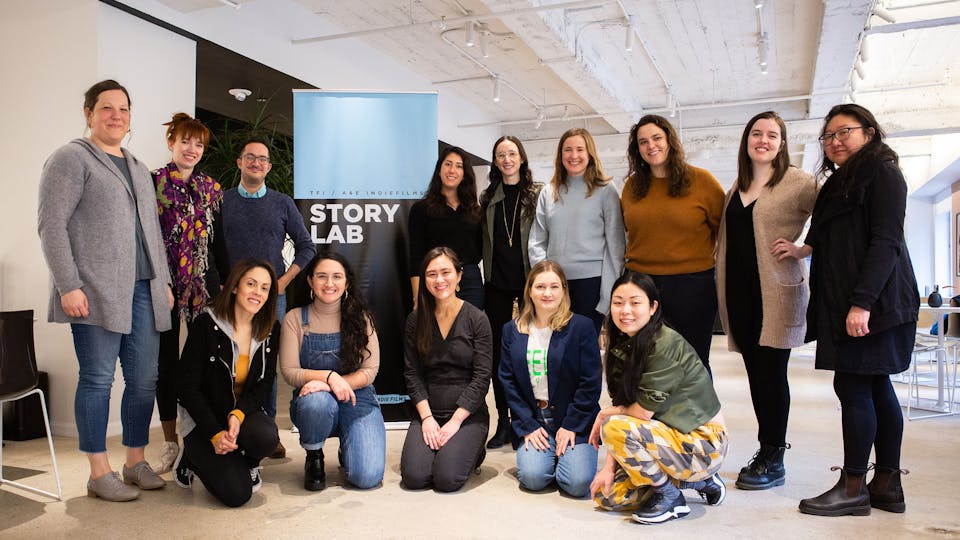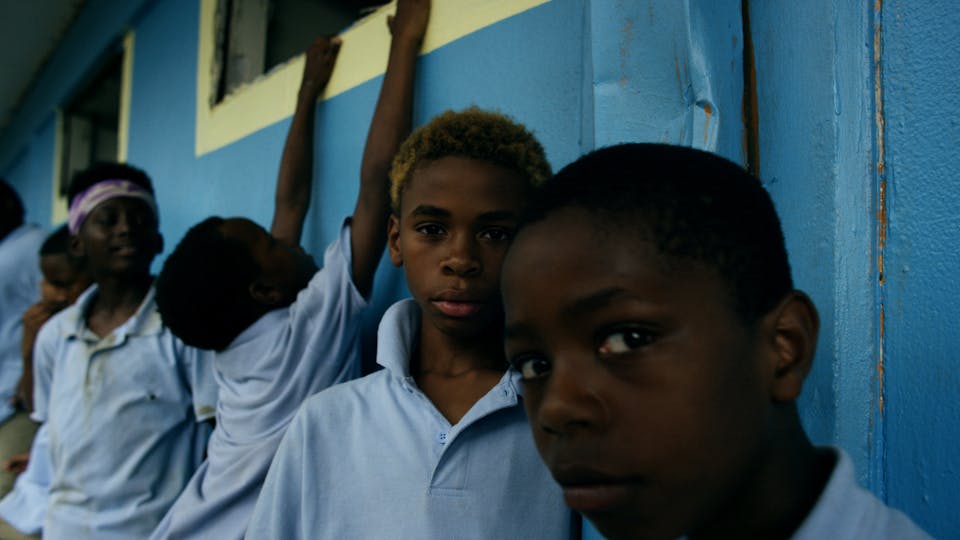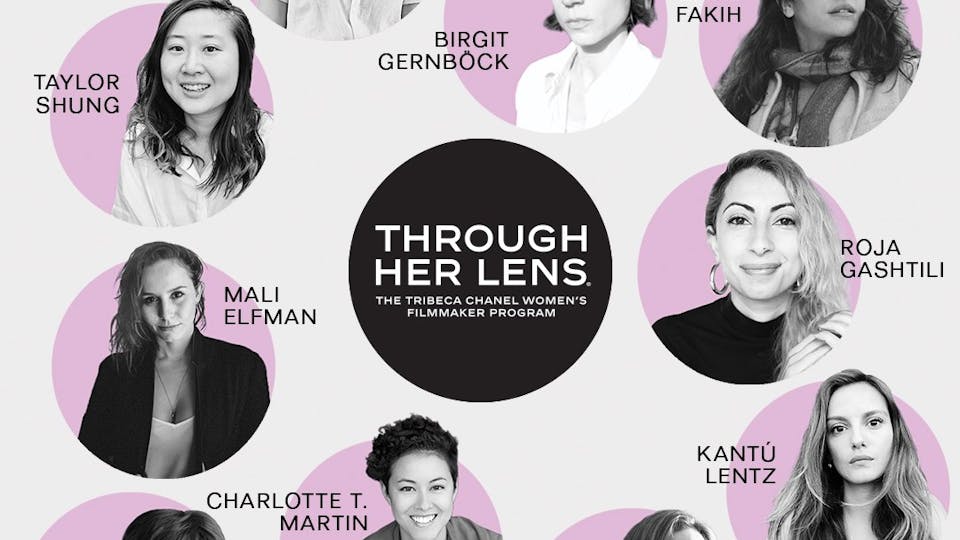A Conversation with Eric Strauss and Daniele Anastasion

five Tribeca Film Institute supported filmsTribeca All AccessGucci Tribeca Documentary FundThe Redemption of General Butt NakedGucci Tribeca Documentary FundThe Redemption of General Butt Naked. The documentary chronicles the story of Joshua Milton Blahyi – a.k.a. General Butt Naked – a brutal African warlord turned Christian evangelist. As seasoned documentary filmmakers, Eric and Daniele have each produced numerous documentaries for the National Geographic Channel, Discovery Channel, History Channel and A&E.
What drew you to the story of General Butt Naked?
Eric read a small blurb about General Butt Naked in a book years ago and he was instantly captivated by Joshua’s story. On one level, there was a fascination with the bizarre details of Joshua’s past, and how General Butt Naked came into being. However, at the core of the story were very profound questions about the nature of evil, forgiveness and faith.
When you hear the story of Joshua’s conversion, you instantly start asking questions. Is he genuine? Is such an extreme transformation even possible? And if so, how would that play out in the real world?
How did you approach him about the film and what was his initial response?
In 2005, Eric went to Ghana to meet Joshua at a Liberian refugee camp, to find out if his story was true, and as layered as it appeared. After returning from that trip, we decided to partner together and returned to Africa for five more shoots over the next five years.
Joshua knew that we were approaching his story as secular filmmakers and that we might not tell his story the same way that a Christian storyteller would. We spoke to him honestly about our own struggles with faith, as well as our own questions about his story and he seemed to appreciate that candidness.
What was the most surprising thing about General Butt Naked that you hadn’t anticipated prior to meeting him?
We were surprised by how much we would grow to like Joshua. We got to know him over a period of five years, and the more we interacted with him, the more we came to see him as a multi-dimensional and likable person. While we were often seduced by Joshua’s charisma, we were equally horrified by his past. The fact that a person can at times be warm and funny, yet also responsible for the deaths of thousands is something that was very difficult for us to reconcile.
Have you shown The Redemption of General Butt Naked or parts of the film to anyone who was victim to the terror of General Butt Naked? Do you plan to screen the film in Liberia?
We’ve shown the film to several Liberians who lived through the 1996 battles during which General Butt Naked was most notorious. We were nervous before the first such screening, and cautioned viewers that some of the content was violent and could be upsetting to watch. One of the Liberians laughed, saying that there was nothing we could show him that he hadn’t experienced already.
However, there is no doubt that the film raises some very sensitive issues for Liberians. Though the government has stabilized, Liberians are still dealing with the aftermath of war. To date, nobody has been tried or prosecuted for any crimes that occurred during the country’s long and bloody conflict. Liberia’s Truth and Reconciliation Commission (TRC) was set up in 2006 to investigate the crimes and atrocities that took place during the war. However, unresolved tensions remain, and Liberians continue to wrestle with often competing needs for justice and reconciliation.
We would love to show the film in Liberia, and hope to be able to do so in the near future.
As filmmakers, when you’re working with a subject as controversial and complex as General Butt Naked, how do you process your own emotions and reactions to the unfolding stories?
Telling this story challenged us as filmmakers and human beings on every level. Every night after filming, we would come back to our hotel and debate vigorously what we had filmed that day. Eric and I were constantly evaluating our own opinion of Joshua — whether it was changing, and how that might be influencing our approach to the story.
Ultimately, we processed a lot of our emotions in the edit room. We wanted audiences to wrestle with the same conflicting feelings about Joshua that we had experienced. We worked really closely with our editor Jeremy Siefer, who was phenomenal at identifying and drawing out the emotional core of a scene. This really helped us organize the material and tell the story in a way that reflected the ups and downs that we experienced as filmmakers.
Both of you have traveled to nearly every corner of the world to make documentaries. What was the most challenging situation in which you were filming and how did it turn out?
It was incredibly challenging to interview Joshua’s victims, many of who were still afraid of him. It was difficult to hear the stories of his past brutality, knowing that we had just spent several days filming that same man.
In many cases, some of those same victims eventually asked us if we would be willing to introduce them to Joshua. Filming those encounters was a very heavy experience, and the scenes we captured were layered with so many complex emotions.
One of TFI’s core mandates is artist support. If you could give working filmmakers one piece of advice, what would it be?
Don’t get discouraged. Challenges and setbacks can often result in a better story. We spent five years working on this film, and there were several long stretches where we didn’t believe the project would ever see the light of day. It seems ludicrous now, but when we started, we planned to be finished filming after one year of following Joshua’s story.
We ran into funding challenges that made it difficult for us to return to Liberia as quickly as we had hoped. However, when we did return to Liberia for a fourth and fifth time, Joshua’s story had evolved considerably. We were able to capture changes over many years, and it resulted in a more thorough and well-developed narrative. We also had more time to evaluate our approach to telling the story, and we revised and fine-tuned our focus over the years. If everything had gone the way we initially wanted, the resulting film would have been far weaker than what we ended up with.
At the same time, it’s important to move forward and keep up your momentum. We owe a lot of credit to our executive producers Gregory Henry and David Shadrack Smith at part2 pictures. They came on board at a time when we were wandering a bit in the wilderness, and they really helped bring focus to the project and push us toward hard deadlines.
The Redemption of General Butt Nakedwww.sundance.org/festivalwww.generalbuttnakedmovie.comwww.generalbuttnakedmovie.comFacebook.
Also, check out our conversation with Gucci grantee Marshall Curry, whose film If a Tree Falls: A Story of the Earth Liberation Front is among this year's Sundance documentaries in competition.






